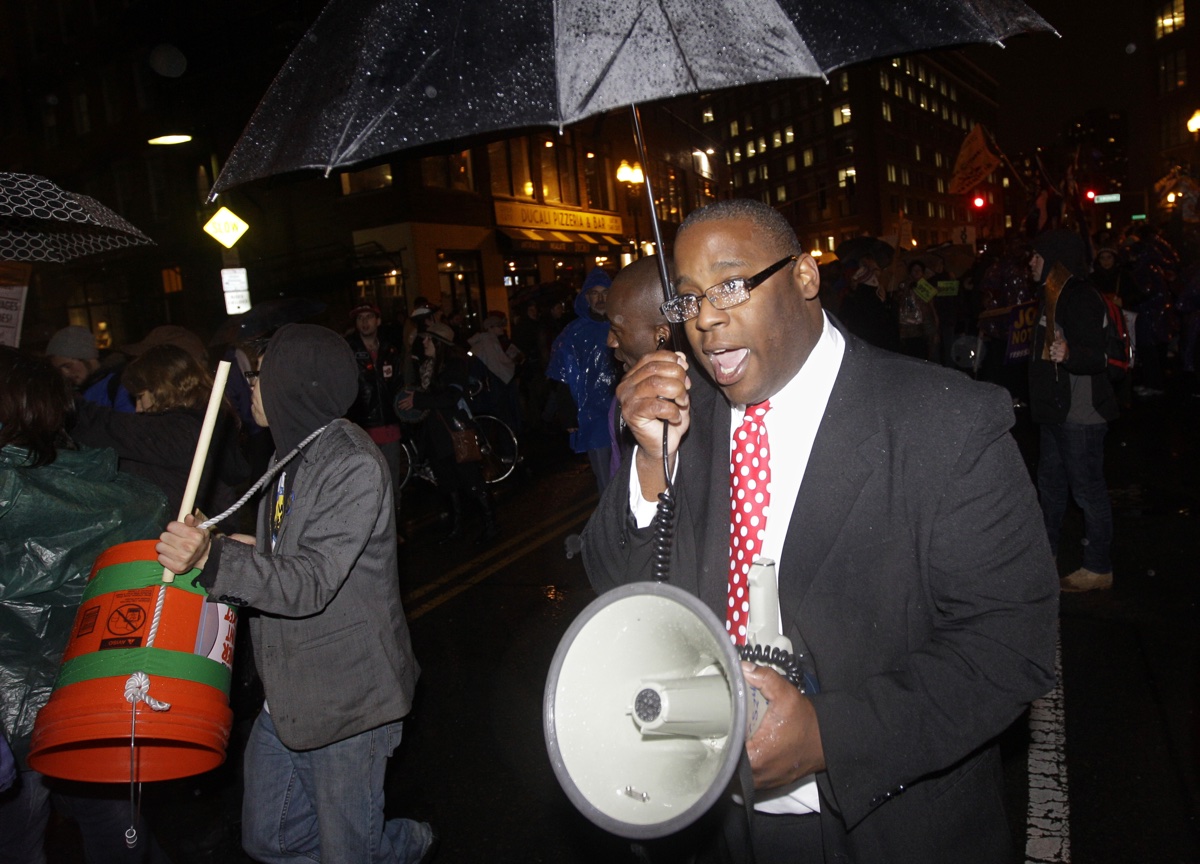A Peek Inside Marty Walsh and Tito Jackson’s War Chests

Photo via AP
The Boston Herald is ready for 2017. Councilor Tito Jackson, on the other hand, could use some time to put some money together.
With a three-story spread in Monday’s paper, the Herald brought long simmering, will-he-won’t-he speculation over the Roxbury pol’s mayoral ambitions to a roaring boil, as Mayor Marty Walsh awaits a challenger in his first bid for reelection. The city’s political reporters and commentators wasted little time noting that Walsh has significantly more campaign cash at his disposal than the two-term councilor.
Walsh has $3 million split between two accounts, while Jackson has just $14,000, the Herald reports. This isn’t terribly surprising, as it’s a safe assumption that once elected, a Boston mayor will immediately begin preparing for reelection. (In Kevin White’s case, the governorship.) And given Jackson’s popularity in his district—he garnered nearly 67 percent of the vote last year to earn reelection—fundraising isn’t a high priority if he is truly satisfied with his current job, as he told reporters at a rally for MBTA janitors Monday.
“In a city that has a strong mayor like Boston, where the mayor can, in recent political history, suck all the oxygen out of the room, all of the advantages accrue to Walsh,” says Stonehill College political scientist Peter Ubertaccio.
If we are to believe that Walsh and Jackson will face off next year, it would be useful to understand who’s been stuffing money into their respective war chests. To wrangle this data into something a little more manageable, let’s take a look at campaign contributions made from the beginning of 2016 until Tuesday.
In that span, Walsh has received 3,462 donations totaling $1,250,531.05, while Jackson has received 168 donations totaling $45,065.74, according to data from the state Office of Campaign and Political Finance (OCPF). The average Walsh donation is $361.22; for Jackson, it’s $268.25.
Walsh’s haul from Boston Police alone is just shy of Jackson’s entire 2016 draw. The mayor has received 103 donations totaling $34,625, while Jackson has received not a single cent from BPD—or any police department for that matter, per OCPF. (Walsh got $250 from one Somerville cop, Sgt. Michael Kiely, who also serves on the Mass. Police Association’s executive board.)
Another group favoring Walsh are some of the city’s biggest builders and developers. In 2016, Walsh received $500 from Trinity Financial; $1,000 from Boston Global Investors; $4,100 from Suffolk Construction (CEO John Fish gave $1,000 to Walsh in June and $1,000 to Jackson in July); and $2,500 from City Realty, who has long been at odds with Jackson, most recently over a proposal to convert a historic church in Roxbury’s Highland Park neighborhood into 30 condos.
In a way, it’s a bit of a role reversal for Walsh, who had about $150,000 less than his opponent John Connolly did upon declaring his candidacy. From his announcement until Election Day, a six-month span, Walsh out-raised Connolly by nearly a quarter-million on his way to victory. Still, it’s an imperfect comparison.
“It was an open seat, and the contours of an open race are very different when you’re running against an incumbent,” Ubertaccio says. “It fundamentally changes the nature of a race. An incumbent goes into a reelection campaign with a whole slew of advantages that a challenger doesn’t have.”
Much of the cash that Jackson does have came from the metro Boston area. Walsh’s donors, on the other hand, are a bit more far-flung. The mayor squeezed $23,000 out of Hingham alone—never mind the $11,100 from New York, $6,200 from Florida, and $2,400 from California.
Jackson faces a steep hill if he decides to chart a path toward the corner office, made only more precipitous the longer he waits to announce his candidacy. Since OCPF rules are limited to calendar year donations, it would behoove Jackson to target the people who can contribute before 2016 draws to a close, and again in 2017, Ubertaccio says.
“If you’re not planning something now to get these people, you’re leaving a lot of money on the table,” he says.


